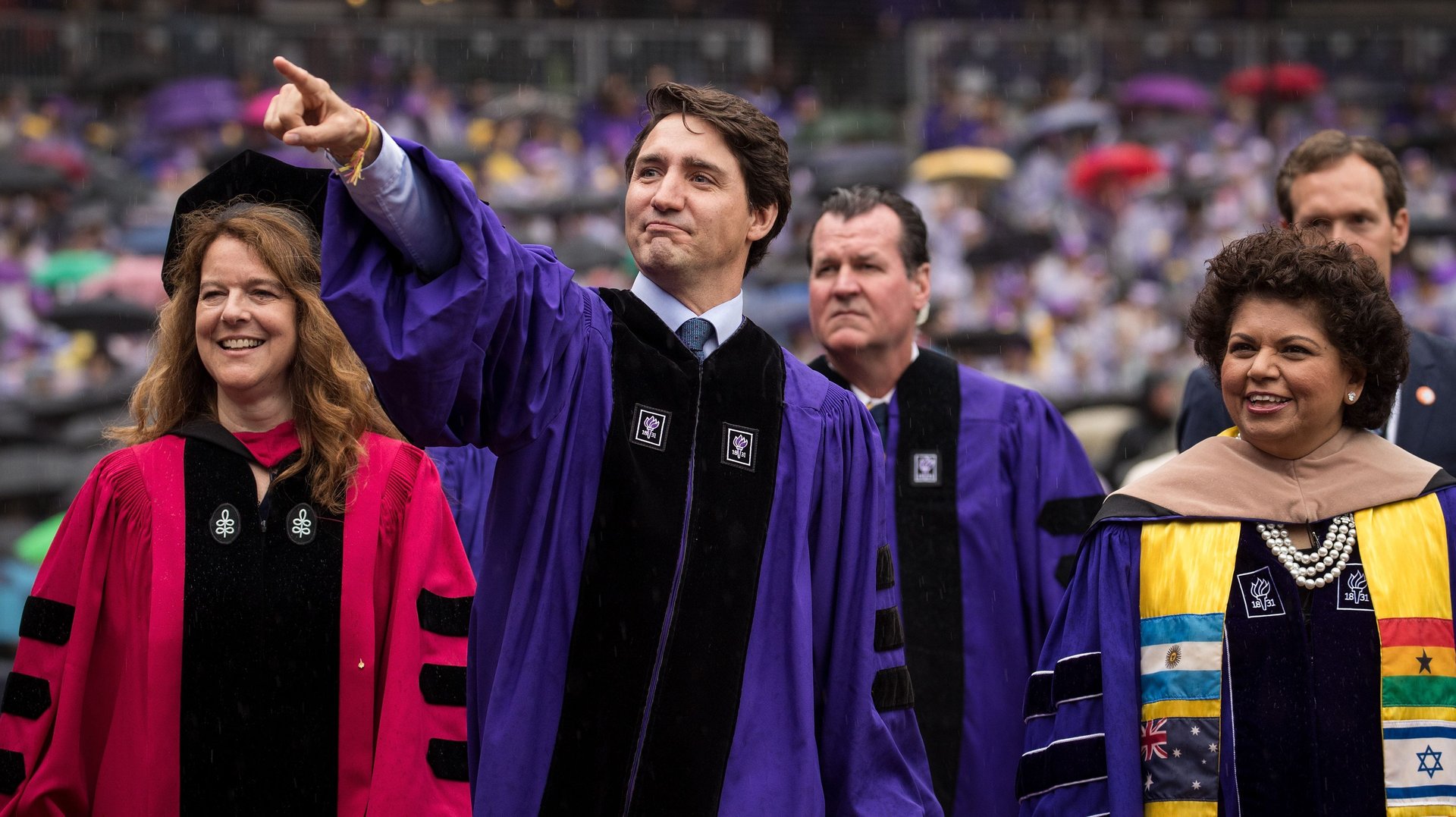Justin Trudeau explains why the best leaders are fine with losing arguments
What does it take to be a leader in the 21st century? Canadian prime minister Justin Trudeau has some ideas—and they stand in stark contrast to many of the high-profile leaders on today’s global political stage.


What does it take to be a leader in the 21st century? Canadian prime minister Justin Trudeau has some ideas—and they stand in stark contrast to many of the high-profile leaders on today’s global political stage.
Speaking to the New York University class of 2018 on May 16, Trudeau offered some specific guidance about what young people can do after leaving school to ensure that they’re in a position to make the world a better place. In choosing to preach the values of a liberal world order even as much of Europe, along with the US, swings toward the populist right, Trudeau outlines a vision of the future in which there will be more leaders in his mold—and fewer like current US president Donald Trump.
See the world
Trudeau told the class of 2018 about a trip he took after his own graduation from the University of British Columbia. Traveling across Europe, Africa, and Asia with friends, he said, opened his eyes to the diversity of languages, cultures, religions and thought within the global community. “[The trip] forced me to meet, engage, and befriend people whose views and experiences … ideas, values and language were very different from my own,” he explained.
Be open to other people’s points of view
“Do you want to win an argument or do you want to change the world?” Trudeau asked. He preached the value of listening to others and removing yourself from “bubbles.” (While he never said the words “echo chamber,” these comments indirectly wade into the ongoing debate about free speech on college campuses.) While there’s comfort in finding one’s own tribe, whether it be religious, political, or racial, the danger is “the corollary—you are part of my tribe and they are not.” The problem with that is that political leadership is about looking out for the common good—not just the good of the people who are most like you. Leaders forget this at their peril.
Be brave enough to bridge gaps
In defining bravery, Trudeau spoke of Wilfrid Laurier, the first French-Canadian prime minister of Canada. Laurier, who served as prime minister from 1896 to 1911, united the country’s dual identities (British and French) and defined Canada’s relation with its former colonial power, the United Kingdom. “The leadership we need most in the years to come is leadership that brings people together” rather than dividing them, Trudeau said.
So how do you bring people together? Trudeau says that it takes courage to unify, because sowing division and enshrining differences is more politically expedient. It’s always easier to find things people disagree on than things that bring people together. ”Here is my request,” he said. “As you go forward from this place, I would like you to make a point to reach out to people whose beliefs and values are different from your own … I would like you to listen to them and try to find common ground.”
Learn from your mistakes
Trudeau painted a rosy picture of the Canadian people. But he acknowledged that there were plenty of “counter-examples and terrible setbacks” in the country’s history that challenge the common stereotype that Canadians are all nice, tolerant, and open. He specifically mentioned “the systemic marginalization and oppression of indigenous peoples.”
Even today, Trudeau said, “we’re not perfect.” Mistakes are learning experiences in the making, and as he explained, “that sense of openness, respect for other points of view, and acceptance of each other really does underpin our approach as we try to solve the great problems of our time.”